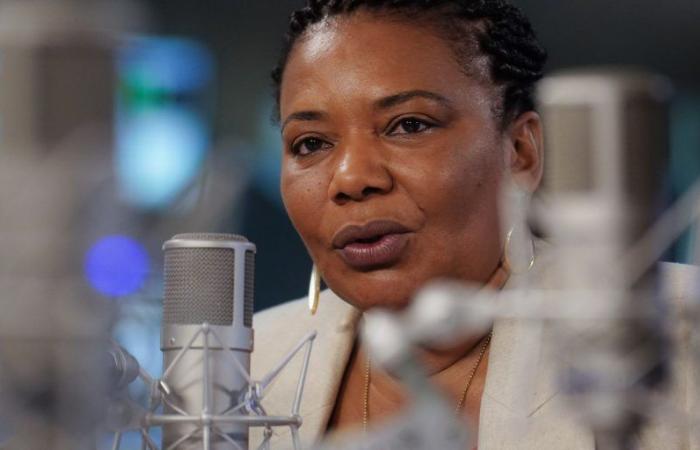The Minister of Culture, Margareth Menezes, highlighted, this Wednesday (24), that the Aldir Blanc National Policy (PNAB) will allocate, by 2027, R$ 15 billion for investment in cultural actions and projects throughout the country and, consequently, , support workers in the sector. The 2020 federal law, created to reduce the impact of the covid-19 pandemic on the cultural sector, allows the direct transmission of values to 100% of the states and 97% of the municipalities that joined the program. There was also 100% adherence among the capitals.
“The direct funding from the federal government to cities and states will be for the cultural sector to develop projects, hold festivals, build cultural equipment. We have the prospect of real transformation with cultural promotion. People will understand the power of culture. When you inject funding of this magnitude, there is an answer because it generates the creative economy of each city, each state in a more permanent way.”
Margareth Menezes’ statement was made this Wednesday (24) in an interview with the program Bom Dia, Minister, produced by Canal Gov, from Empresa Brasil de Comunicação (EBC).
The minister celebrated 20 years of the national policy Cultura Viva, which promotes the country’s cultural diversity through financing Culture Points spread across the country, and idealizes that culture becomes State policy. “These policies are created to promote security for the cultural sector and also for the Brazilian people, as a way of guaranteeing their cultural rights that are in the Constitution. Our objective is for us to ensure that the Ministry of Culture and Brazilian culture become a State policy.”
During the interview, the minister emphasized the size of the Brazilian cultural sector, which, in 2021, employed 5.5 million people (5.6% of the country’s total employed population) and the economy generated by Brazil’s culture and creative industries in 2020: equivalent to 3.11% of the Brazilian Gross Domestic Product (GDP). However, the minister lamented that, for every R$100, only R$0.57 is invested in national culture.
G20
Minister Margareth Menezes was questioned by journalists participating in the Good morning, Minister about how the members of the G20, under Brazil’s rotating presidency this year, have treated the creation of artistic content by artificial intelligence (AI) from works that hold copyright. The minister defended intellectual property and the due remuneration of artists.
“The digital environment generates money for someone. These are truly great fortunes for those who master it. […]. We are talking about an industry that generates money for some and that we need to regulate to bring rights to producers and national production.”
Regarding the spread of fake news and hate crimes, the minister confirms that countries are united to combat them. “What is proposed is that there needs to be regulation of fakenews that harm, take away people’s normality and create an environment of illusion.”


Margareth Menezes talks about the importance of heritage sites and the preservation of Brazil’s Cultural Heritage
The Brazilian Minister of Culture says that culture is very important within the G20 as a tool to boost the creative economy and sustainability, with real power for transformation, combating hunger and intolerance, thanks to cultural diversity within the bloc that brings together the 19 most influential economies in the world, in addition to the European Union and the African Union.
Regarding the G20 agenda that preserves the memory and material and immaterial heritage of countries, the minister pointed out that it is necessary to be aware of the importance of listings and the preservation of Brazil’s Cultural Heritage, as is done in other locations around the world.
“It is important that cities, states and citizens are aware of the value of their city’s memory and heritage. Because these heritages record the social evolutions of our city, our state, Brazil as a whole, mainly those cities that have urban centers, of memory and listed. We found a huge deconstruction there. We are losing a lot of assets”, assessed the minister.
Patrimony
At the Good morning, MinisterMargareth Menezes explained the initiatives for the recovery and preservation of Brazilian cultural heritage, with emphasis on the New Growth Acceleration Program (PAC) Seleções, which will allocate R$ 700 million from the New PAC, to 139 works and 100 new projects for restoration and recovery of public spaces and improvement of quality of life, promotion of tourism and local development, such as the restoration of Praça dos Três Poderes, announced this week.
“Through this program, we will be able to rescue some important actions for our material and immaterial national heritage […]. We have to take care of our heritage, our memories. From the moment there is international recognition – and Brazil has several – it means that we are recording our history and quality”.
She cited the new public policy Canteiro-Modelo de Conservação of the National Historical and Artistic Heritage Institute (Iphan), which conserves listed assets owned by low-income families. “Whoever receives the renovation will have to maintain it, preserve it. When we go to Europe and see those monuments, there was each generation that had the job of maintaining them.”
Along these lines, the minister also commented that Choro was declared cultural heritage by Iphan, in February.
Rouanet Law
Minister Margareth Menezes also spoke about the importance of the Rouanet Law [Lei 8.313/1991] for the democratization of access to resources to finance cultural projects. The legislation allows individuals and legal entities to sponsor cultural initiatives and deduct investment from Income Tax. She listed the versions of the Rouanet Program: the North, a specific financing line for the region, and the Rouanet nas Favelas Program, which supports projects in favela territories.
Faced with criticism of the law regarding the collection and distribution of resources, the minister responded and guaranteed that the monitoring of transfers is rigorous. “The inspection [da Lei Rouanet] It is very tough when it comes to execution and delivery. The Ministry of Culture does not give money, the ministry analyzes projects. Everything is transparent, everything is disclosed, everything is monitored,” she explained.
Democracy
Finally, the minister emphasized that culture also has the function of educating, respecting diversity. And she condemned the censorship of LGBT books and events, which stands for lesbian, gay, bisexual, transgender and other self-identifications.
“Within art, we have the democratic state. Art gives the artist the freedom to create in order to have a real culture. The role of the State is to ensure that everyone also has access to produce and express themselves. So, that’s what we’re promoting in our policies.”







